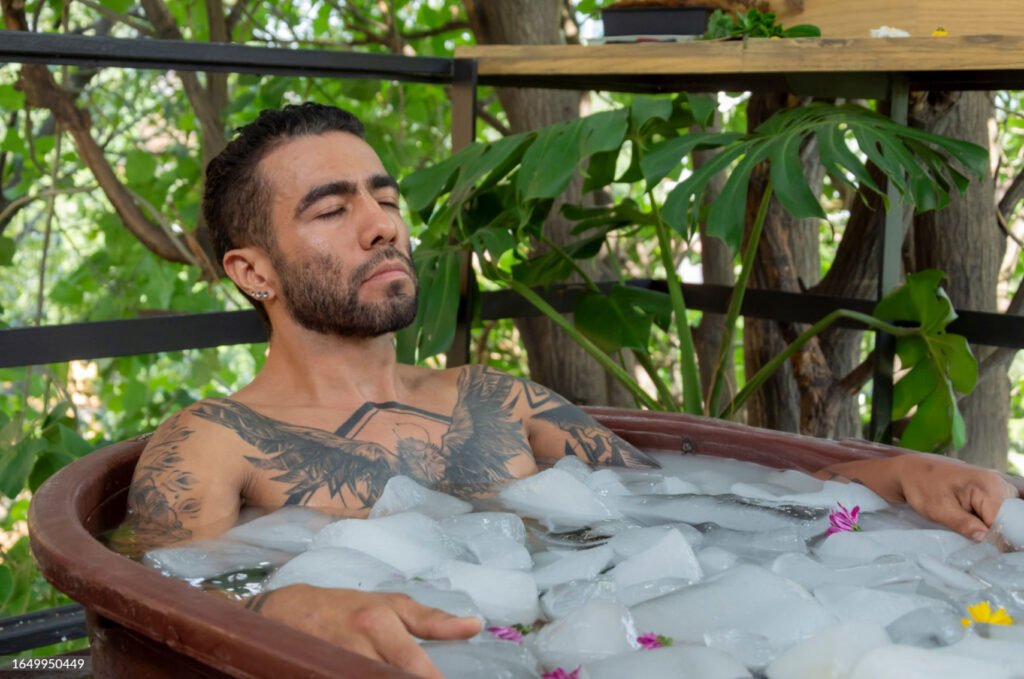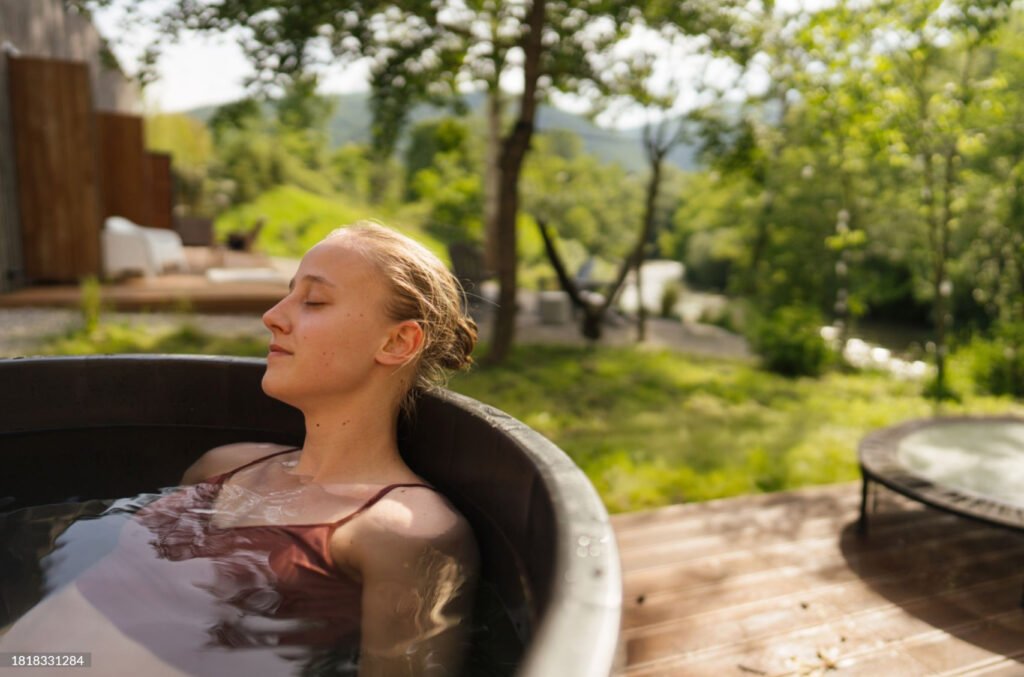Unlock the Power of Cold Tub for Emotional Wellness
Lucie
December 21, 2024

Introduction to Cold Tub Therapy
Cold tub therapy, also known as cold water immersion or cryotherapy, is a growing wellness trend that offers a wealth of cold therapy benefits for both physical recovery and emotional wellness. By immersing your body in cold water, you trigger various physiological reactions that can help reduce stress, increase circulation, and improve mental clarity. Let’s explore how cold exposure can enhance your overall well-being.
How Cold Tub Therapy Works
When you immerse your body in cold water, it activates several physiological processes. The most important of these is vasoconstriction, where blood vessels constrict to preserve warmth. This leads to a reduction in inflammation and helps in muscle recovery after physical exertion. The cold also stimulates the sympathetic nervous system, which increases heart rate and improves circulation, providing a natural boost to your energy levels.
But the benefits aren’t just physical. Cold exposure also encourages the release of key neurotransmitters like norepinephrine and endorphins. These chemical messengers play a crucial role in mental resilience, helping to regulate mood and alleviate feelings of stress or anxiety. Regular practice of cold water immersion can train the body to better handle stress, promoting emotional balance and mental clarity.
The Emotional Benefits of Cold Tub Therapy
One of the most compelling reasons to try cold tub therapy is its ability to boost emotional well-being. Research has shown that cryotherapy emotional benefits are significant, with cold exposure leading to a release of serotonin and norepinephrine, both of which are known to help regulate mood. People who practice cold water immersion frequently report feeling a sense of mental clarity and emotional calmness after their sessions.
In fact, several studies suggest that cold water immersion recovery can help reduce symptoms of anxiety and depression. The experience of immersing oneself in cold water creates a powerful sense of focus and alertness, which can help diminish feelings of emotional overwhelm. Many people experience a sense of euphoria, often referred to as a “cold high,” following their cold exposure. This rush of feel-good hormones can be a natural remedy for stress and a great way to reset your emotional state.

Building Mental Resilience with Cold Tub Therapy
Cold tub therapy can also be seen as a form of mental resilience cold exposure training. The practice challenges the body and mind to endure discomfort, teaching you how to stay calm under pressure and improve your capacity for emotional endurance. Over time, regular cold immersion can reduce the body’s overall response to stress, allowing you to manage daily challenges with greater ease and mental fortitude.
Individuals who incorporate cold exposure into their routine often report improved focus, increased energy, and a better ability to stay present in stressful situations. These stress reduction techniques, like cold water immersion, can give you the mental tools needed to better navigate life’s ups and downs.
How to Incorporate Cold Tub Therapy Into Your Routine
To fully experience the benefits of cold tub therapy, it’s essential to integrate it into your routine in a way that is safe and effective. Begin by starting with short immersion sessions—about 1 to 3 minutes—and gradually extend the time as your body adapts to the cold. You can work up to 5 to 10 minutes per session, but be sure to listen to your body and avoid overdoing it.
For maximum effectiveness, aim to practice cold water immersion 2-3 times per week. The key is consistency. Over time, you will notice a cumulative improvement in your emotional well-being and mental resilience.
Before entering the cold tub, it’s helpful to warm up the body with some light stretching or a brief warm shower to activate circulation. Once submerged, focus on your breathing to calm your mind. After your session, consider engaging in gentle stretching or taking a warm shower to bring your body temperature back to normal and promote muscle relaxation.

The Science Behind Cold Tub Therapy for Mental Health
There’s real science behind why cold therapy benefits emotional well-being. Cold exposure stimulates the release of endorphins—the body’s natural painkillers—helping to alleviate both physical and emotional discomfort. This surge of endorphins not only reduces pain but also promotes a sense of euphoria, improving overall mood and emotional resilience.
Moreover, cold water immersion boosts the levels of norepinephrine, a neurotransmitter that plays a critical role in regulating attention, focus, and mood. Research suggests that elevated norepinephrine levels can significantly reduce symptoms of stress and anxiety, contributing to a more balanced emotional state. For those dealing with ongoing mental health challenges, regular cold exposure may serve as a valuable tool for improving mood and building emotional strength.
Cold Tub Therapy and Stress Relief
Cold tub therapy has also become an increasingly popular way to manage stress reduction. By regularly practicing cold immersion, you can lower the production of cortisol—the body’s primary stress hormone—while simultaneously increasing the release of serotonin and dopamine, which are essential for maintaining a positive mood. Many people find that incorporating cold exposure into their routine gives them a healthier, more manageable response to stress, leaving them better equipped to face life’s challenges.

Boost Your Mental Resilience with Cold Tub Therapy
Integrating cold tub therapy into your routine can be a game-changer for both physical recovery and emotional wellness. By regularly practicing cold water immersion, you can experience improved mood, enhanced focus, and greater mental resilience. Whether you’re recovering from physical activity or seeking a natural way to reduce stress, cold tub therapy offers an innovative solution for maintaining emotional balance.



